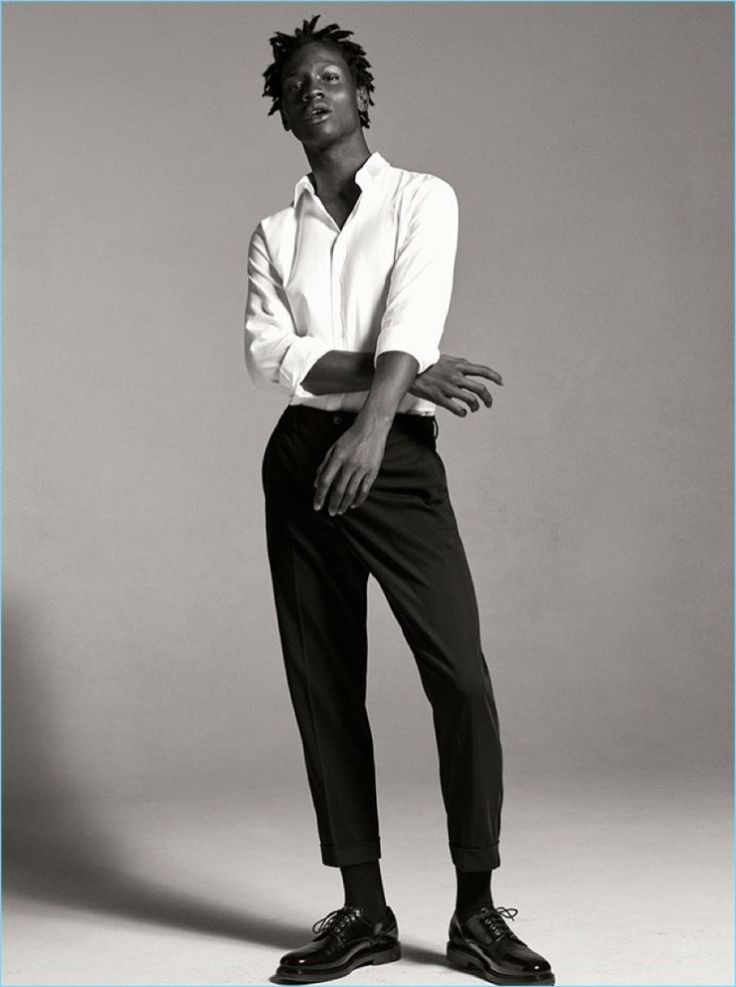
The modeling industry has long fascinated individuals, drawing them in with the promise of glamour and fame. However, beyond the dazzle of flashing cameras and the allure of runway lights, lies a world filled with challenges and complexities that aspiring models must navigate. In this comprehensive guide, we will explore the essential aspects that every aspiring model should be aware of before stepping into the captivating yet demanding realm of modeling.
The modeling industry, with its fashion shows, magazine covers, and international campaigns, often seems like an enchanting dream. It's a world where creativity meets commerce, and where one's image can become iconic. The attraction of being in the spotlight, showcasing designer clothes, and traveling to exotic locations is undeniable. Yet, the journey to success in this industry is not as effortless as it might seem.
Aspiring models need to recognize that the path to success is not just about a pretty face. It requires resilience, determination, and a deep understanding of the intricacies of the industry. From diverse beauty standards to the physical and mental demands, from potential scams to career volatility, and from legal rights to ethical considerations—each aspect plays a pivotal role in shaping a model's career.
In the following pages, we will delve into these vital aspects, providing valuable insights, practical tips, and expert advice. By the end of this guide, aspiring models will have a clear understanding of what it truly means to be a part of the modeling industry. So, let's embark on this enlightening journey together, preparing you for the challenges and triumphs that await in the fascinating world of modeling.
Diverse Standards of Beauty
The modeling industry, propelled by its inherent allure, now thrives on embracing a multitude of definitions for beauty. Aspiring models stepping into this vibrant arena must recognize the evolving landscape where diversity is not just celebrated but also essential. The era of standardized beauty ideals is fading, making room for models of all shapes, sizes, and backgrounds to shine. Embracing this diversity becomes a cornerstone for success. Models are no longer confined to narrow stereotypes; they are breaking barriers and reshaping the industry's narrative, showcasing the beauty of uniqueness.
In this diverse tapestry, building unwavering self-confidence is paramount. The days of aspiring models conforming to a single, unattainable image are long gone. Confidence becomes the spotlight that illuminates a model’s true essence. It is this confidence that empowers models to embrace their distinctive features and qualities, setting them apart in a sea of faces. Navigating the modeling industry demands resilience, and self-confidence acts as the armor that shields against criticism and rejection. It enables models to embrace every opportunity and challenge with grace, ensuring their presence is felt and their impact is profound.

Furthermore, fostering an inclusive mindset becomes not only a personal endeavor but also a collective responsibility. Models who champion diversity and inclusivity create a ripple effect, inspiring positive change within the industry. Supporting fellow models, appreciating their uniqueness, and celebrating their successes fosters a culture of acceptance and mutual respect. As aspiring models cultivate this mindset, they contribute to a transformative shift, making the modeling industry a more vibrant, empowering, and accepting space for everyone involved.
Physical and Mental Demands
In the glitzy world of modeling, the physical and mental demands placed on models are often underestimated. It's not merely about striking a pose or wearing exquisite garments; it's a lifestyle that demands unwavering dedication and discipline. Physically, models are expected to maintain specific body standards, which often require strict diets and rigorous exercise routines. The pressure to look flawless can lead to physical exhaustion and, in extreme cases, health issues. Therefore, aspiring models must prioritize their well-being, embracing balanced diets and regular exercise while avoiding extreme measures that might harm their health.
Equally significant are the mental demands that come with the profession. The constant scrutiny of one's appearance and the fear of rejection can significantly impact mental health. Models must develop resilience to handle criticism and navigate the industry's competitive nature. Building a strong support system, including friends, family, and mental health professionals, is crucial for maintaining mental well-being. Practicing self-care, mindfulness, and seeking therapy if necessary, are essential strategies to cope with the psychological challenges of the modeling industry.

Moreover, the modeling industry often requires models to balance hectic schedules, jet-setting across continents, and adapting to different time zones. This constant movement can lead to fatigue and emotional stress. Models need to develop coping mechanisms to manage the demands of a nomadic lifestyle effectively. Time management, adequate rest, and finding moments of tranquility amid the chaos are vital. By understanding and addressing these physical and mental demands, aspiring models can embark on their careers with a strong foundation, ensuring their overall well-being remains a priority amidst the glamour and pressures of the industry.
Scams and Exploitation
While the modeling industry holds the promise of glamour and success, it also harbors its fair share of scams and exploitation. Aspiring models must tread cautiously, recognizing the warning signs to protect themselves from unscrupulous individuals and agencies. One common red flag is agencies demanding substantial upfront fees. Legitimate modeling agencies earn their income by commissioning a percentage from the work they secure for models, not by charging fees upfront. Models should thoroughly research potential agencies, verifying their credibility through online reviews, industry reputation, and testimonials from established professionals.

Exploitation, unfortunately, is another grim reality. Models, especially newcomers, can find themselves in vulnerable positions where their rights are disregarded, and their well-being is compromised. It's imperative for models to read contracts meticulously, ensuring they understand the terms before signing anything. Seeking legal advice, if necessary, can provide additional clarity and protection. Additionally, models should be aware of inappropriate requests or uncomfortable situations and have the courage to voice their concerns. Trusting one's instincts and prioritizing personal safety are non-negotiable aspects of navigating the industry while avoiding scams and exploitation.
Staying informed and vigilant is the key to safeguarding one's career and reputation. By educating themselves about the industry standards and legal rights, aspiring models empower themselves to make informed decisions. Recognizing the signs of potential scams, understanding contract terms, and asserting boundaries are essential steps toward a secure and ethical modeling career. In the subsequent pages, we will explore the unpredictable nature of modeling careers and strategies to navigate the industry's volatility successfully.
Career Volatility
The modeling industry, with its ever-changing trends and market demands, is renowned for its inherent volatility. Models experience the peaks of success but must also weather the lows of uncertainty. Understanding and preparing for this career volatility are vital aspects for aspiring models to consider. Trends can shift rapidly, impacting the demand for specific looks, styles, or even body types. What might be in vogue today could be passé tomorrow. Aspiring models should embrace adaptability, continuously evolving their skills and versatility to meet the industry's shifting demands.
Networking also plays a pivotal role in navigating the industry's volatility. Building strong professional connections can open doors to opportunities, providing models with a competitive edge. Attending industry events, fashion shows, and networking with photographers, designers, and other models can create valuable relationships. A robust network not only enhances visibility but also offers a support system during challenging times. Models can learn from the experiences of their peers, gaining insights that can help them navigate the unpredictable nature of the industry more effectively.

Furthermore, diversification is a key strategy for sustaining a modeling career amidst its fluctuations. Models can explore adjacent fields within the entertainment industry, such as acting or entrepreneurship. Developing additional skills and talents not only broadens their career prospects but also provides stability during quiet periods in the modeling world. By embracing adaptability, fostering strong networks, and diversifying their skill set, aspiring models can not only survive but thrive in the face of career volatility, ensuring a sustainable and enduring presence in the competitive world of modeling.
Legal and Ethical Considerations
Understanding the legal and ethical aspects of the modeling industry is paramount for aspiring models seeking long-term success. Models need to be well-versed in their rights, ensuring they enter contracts with clear knowledge of the terms and conditions. Legal disputes can arise, making it essential for models to consult with legal professionals specialized in entertainment law when necessary. Moreover, models should be aware of their image rights, ensuring they have control over the usage of their photographs and videos. Being proactive in protecting their professional image can safeguard against unauthorized use and exploitation.
Ethical considerations also hold significant weight in the modeling industry. Models are often seen as role models, influencing society's perceptions of beauty and fashion. Embracing ethical practices means promoting diversity, body positivity, and inclusion within the industry. Models can advocate for fair treatment, respectful working conditions, and proper compensation. By upholding ethical standards, models contribute to creating a healthier and more supportive environment for everyone involved, fostering a positive industry culture.
As we conclude this comprehensive guide, aspiring models are now equipped with essential knowledge about the modeling industry. From embracing diverse beauty standards and understanding the physical and mental demands to safeguarding against scams, navigating career volatility, and upholding legal and ethical considerations, aspiring models are prepared to embark on their journey with confidence and awareness. Remember, the path to success in the modeling industry may be challenging, but armed with knowledge and resilience, you can transform challenges into opportunities. By embracing your uniqueness, fostering a supportive network, and standing firm on your legal and ethical grounds, you can not only navigate the complexities of the industry but also contribute to making it a more inclusive and empowering space for future generations of models. Best of luck on your modeling journey!











